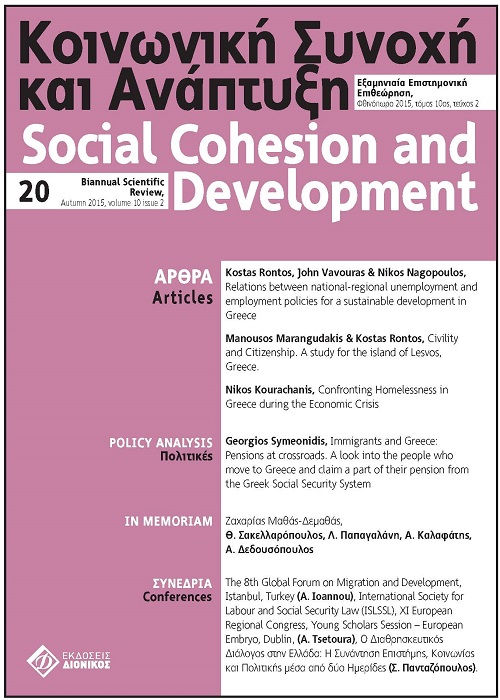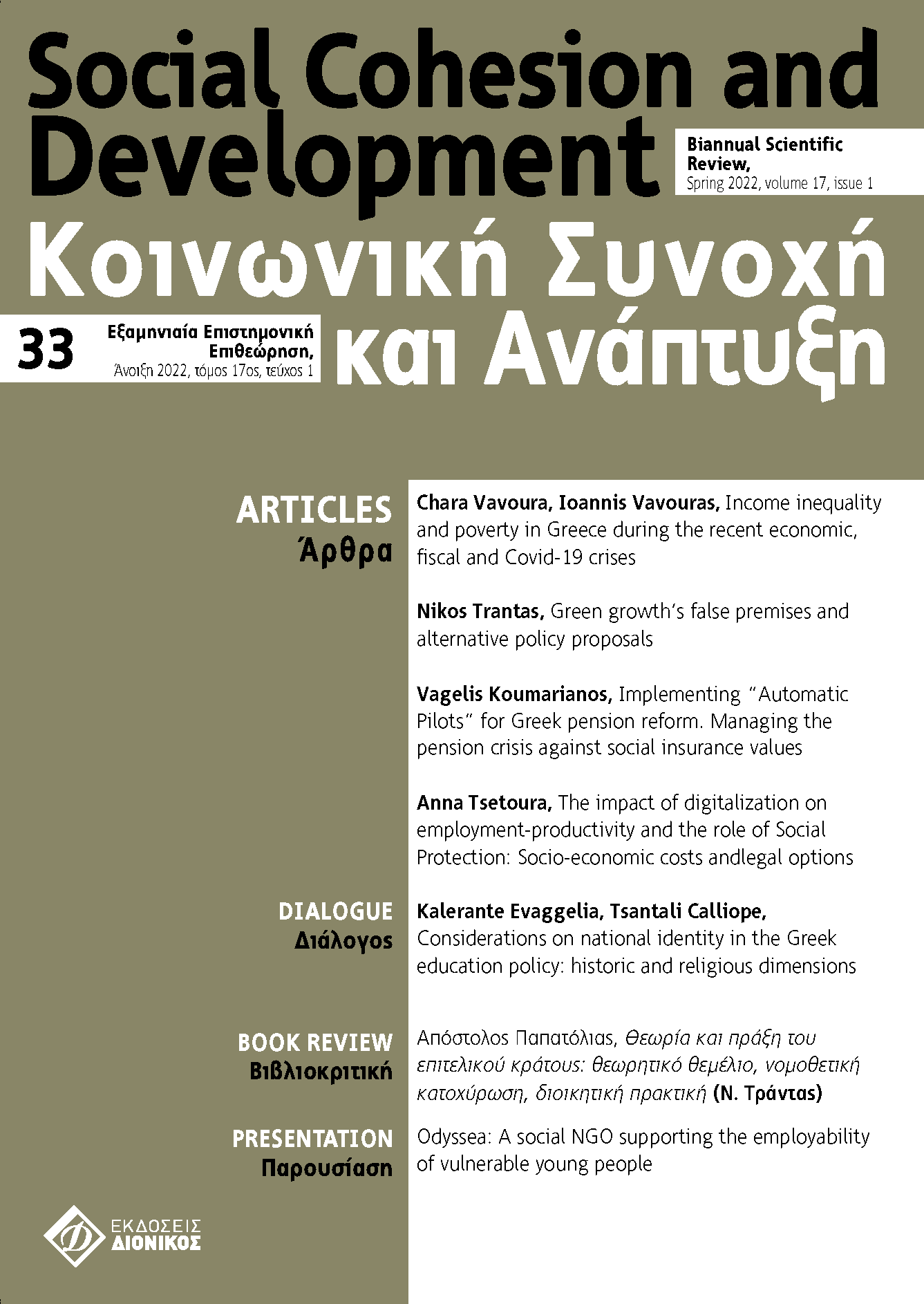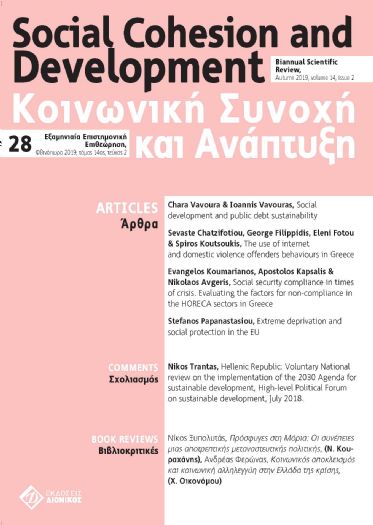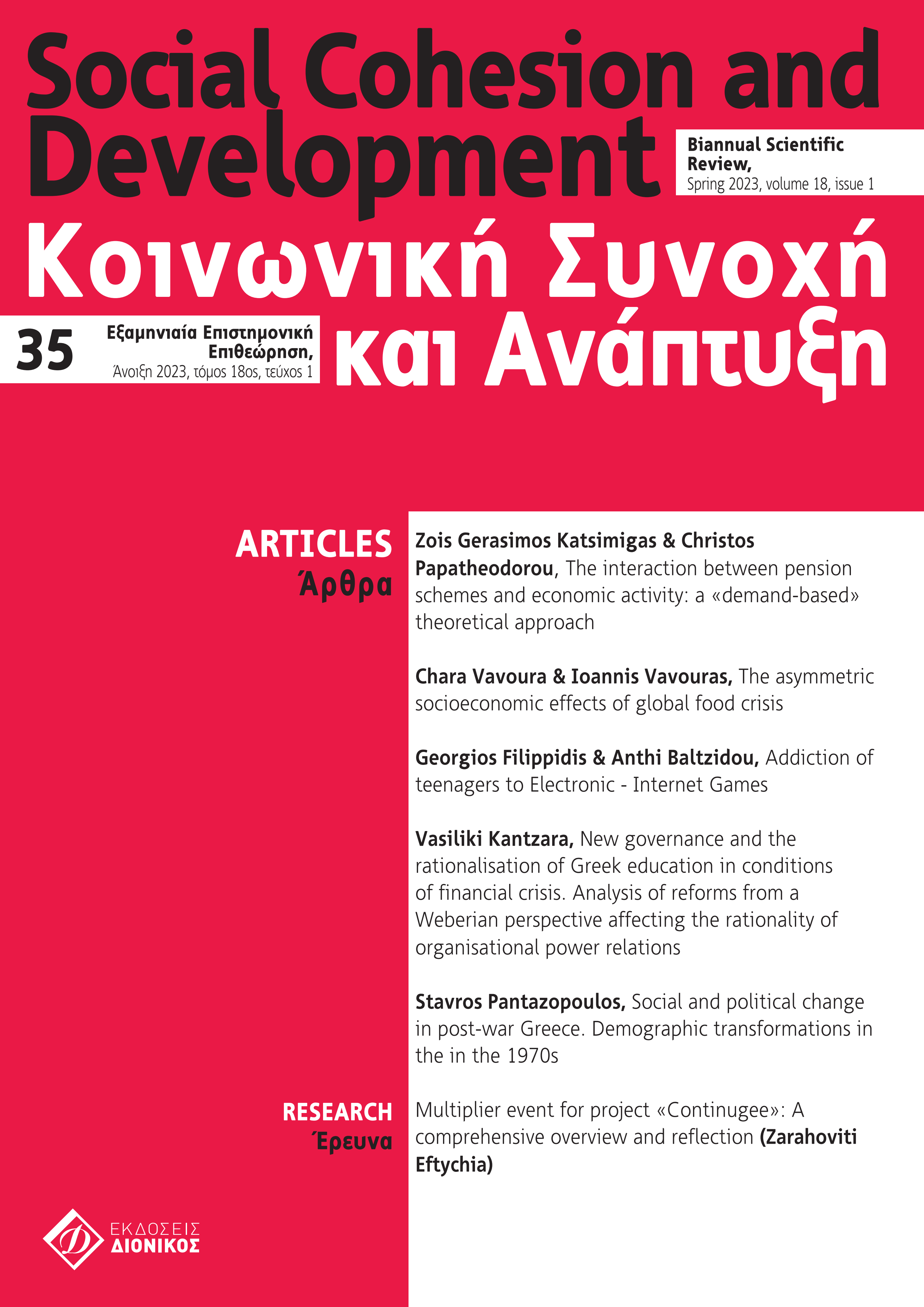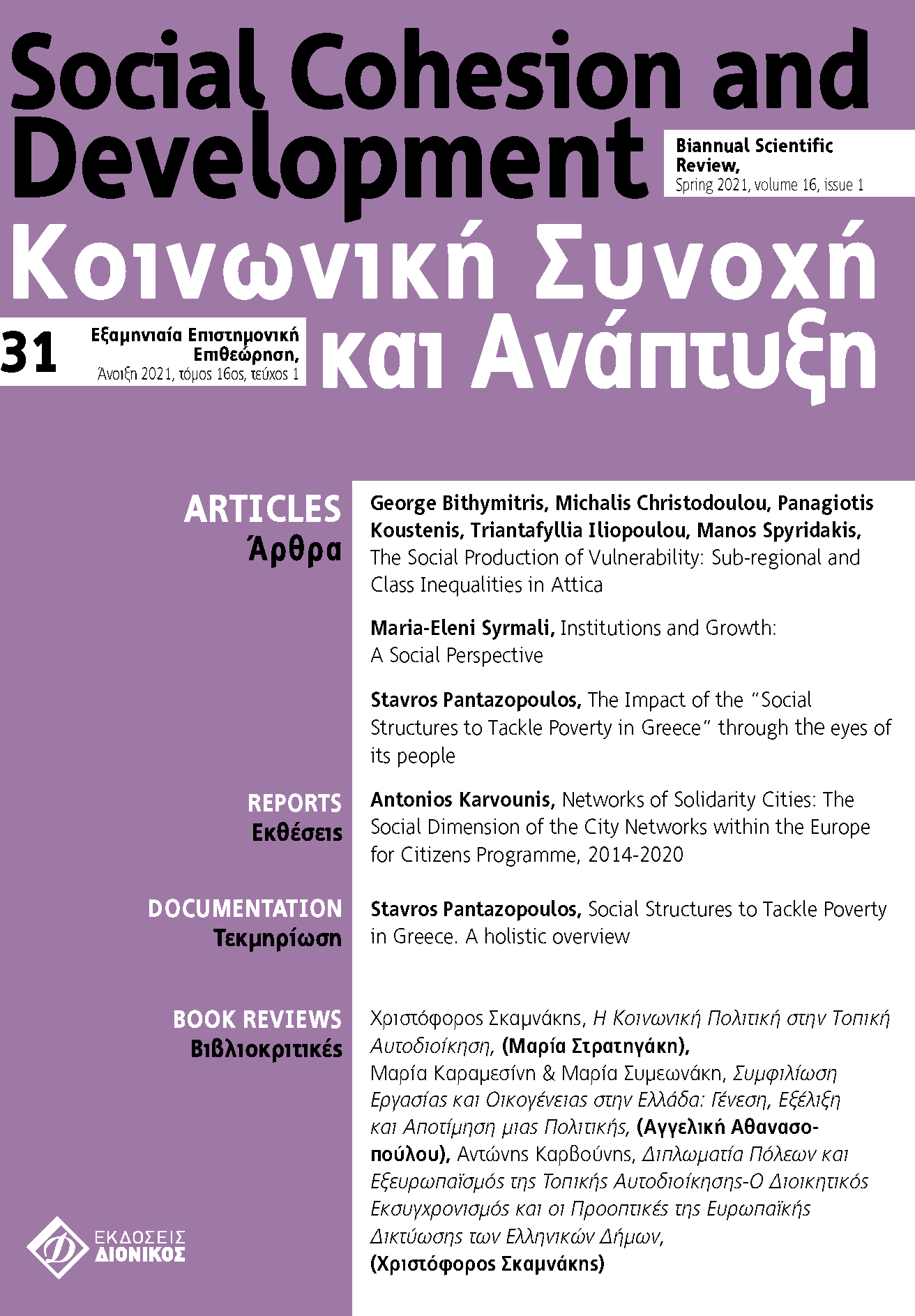The relationship between economic and social development with competitiveness: An empirical study
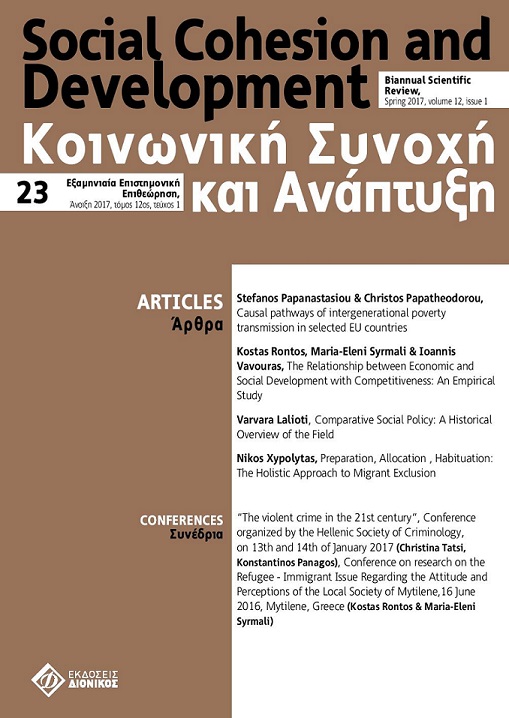
Abstract
The prevalence of institutional weaknesses largely unveils the existence of inherent economic and social underdevelopment as well as persistent bottlenecks of political nature, which in principle are more intense in less
developed countries. In this study, by using a global sample of developed and developing countries it is proved that the relationship between corruption, which is a serious institutional deficiency, and income is not a symmetric one. However, the effective control of corruption should not be considered as a “quasi luxury good” the demand of which increases once the level of income rises to a certain level. On the contrary, it may be
achieved through the adoption and effective implementation of the appropriate long-run policies and institutional reforms.
Article Details
- How to Cite
-
Rontos, K., Syrmali, M.-E., & Vavouras, I. (2018). The relationship between economic and social development with competitiveness: An empirical study. Social Cohesion and Development, 12(1), 21–37. https://doi.org/10.12681/scad.15943
- Issue
- Vol. 12 No. 1 (2017)
- Section
- Articles

This work is licensed under a Creative Commons Attribution-NonCommercial-ShareAlike 4.0 International License.
Authors who publish with this journal agree to the following terms:
- Authors retain copyright and grant the journal right of first publication with the work simultaneously licensed under a Creative Commons Attribution Non-Commercial License that allows others to share the work with an acknowledgement of the work's authorship and initial publication in this journal.
- Authors are able to enter into separate, additional contractual arrangements for the non-exclusive distribution of the journal's published version of the work (e.g. post it to an institutional repository or publish it in a book), with an acknowledgement of its initial publication in this journal.
- Authors are permitted and encouraged to post their work online (preferably in institutional repositories or on their website) prior to and during the submission process, as it can lead to productive exchanges, as well as earlier and greater citation of published work (See The Effect of Open Access).





